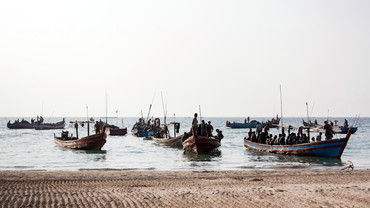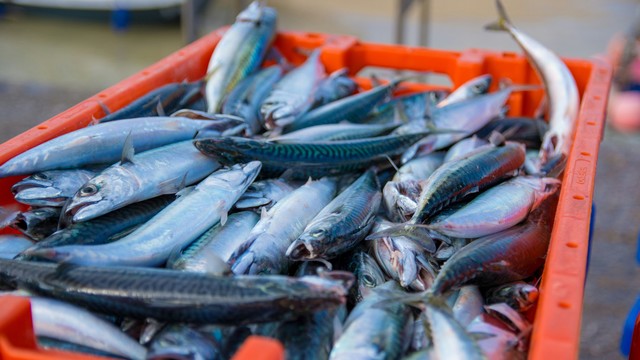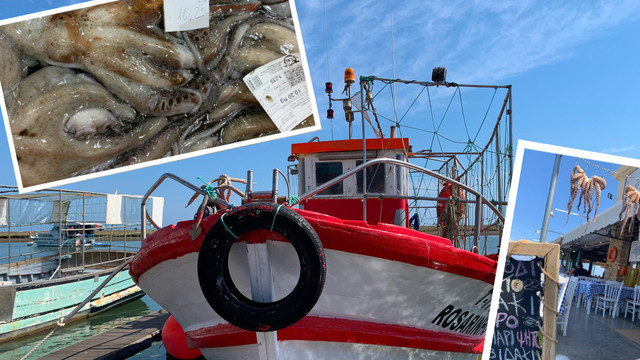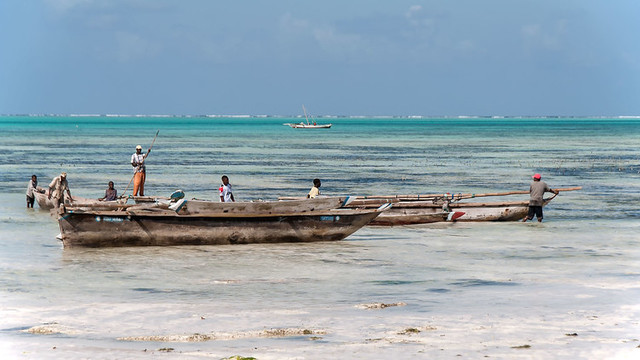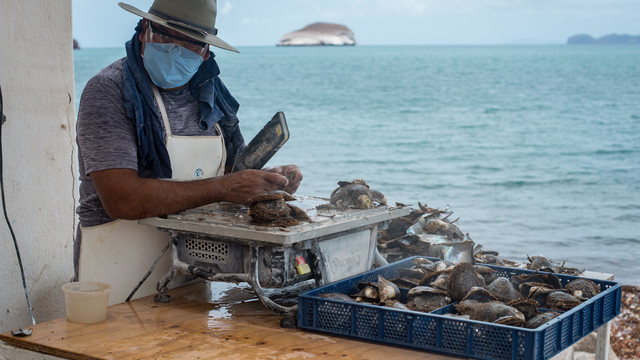Fish Night 5: How subsidies are not always beneficial equally to fish and people
IIED held its fifth Fish Night event on 17 October 2018, with Professor Rashid Sumaila speaking about the ways to make sure subsidies designed to benefit the fishing sector don’t work to the detriment of smaller fisheries.
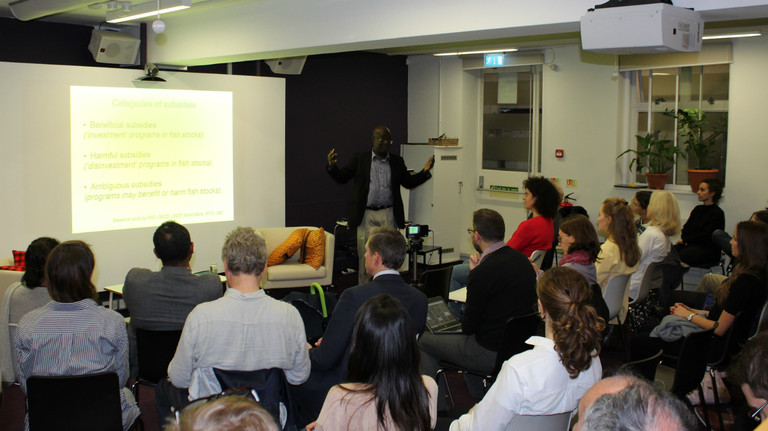
Professor Rashid Sumaila addresses interested marine specialists from research institutes, the private sector and international organisations at Fish Night 5 (Photo: Zaiza Khan, IIED)
IIED's Fish Night series highlights timely fisheries and oceans issues, and Professor Sumaila, professor and director of the Fisheries Economics Research Unit in the Global Fisheries Cluster at the University of British Columbia, brought the audience up to date with the subsidies issue, showing with a range of data how subsidies are widespread and not always beneficial equally to fish and people.
‘Fish Night 5: Can subsidies work for fish and for people? Let’s get the conversation started' was attended by a range of marine specialists from research institutes, the private sector and international organisations.
IIED fisheries expert, principal researcher Essam Yassin Mohammed, hosted the evening. He set out the imperative for protecting marine and coastal ecosystems and the livelihoods of millions of people involved in small-scale fishing. Ecosystems provide a range of critical services reaching across supply chains, from food, biodiversity and culture to regulating carbon sinks, the climate and flood protection.
Guest speaker Sumaila followed, and highlighted why it is important to have an overview of the impact of subsidies – worth US$35 billion globally. Governments have a range of regulatory and market-based instruments they could apply to the fisheries sector to promote sustainable management, but too often the positive or negative impact is not fairly distributed.
Subsidies that benefit industrial-scale businesses, for example, may have a detrimental effect on smaller fisheries and on the marine and coastal environment.
In fact, as Sumaila said, most subsidies encourage an increase in fishing capacity and overfishing.
Research done by Professor Sumaila with others, published in 2017, found that 84% of subsidies for the fisheries sector went to large-scale fleets in developed countries. The findings emphasised the need for governments to move towards prioritising positive subsidies that were both beneficial for conservation and had benefits fairly distributed among the different parts of the fisheries sector.
A lively question-and-answer session followed, and you can watch the entire event on Facebook Live in the video below. The full audio from the night is also available, while Sumaila's presentation is on IIED's SlideShare channel.
The event concluded with a drinks and networking reception.
Previous events
IIED's Fish Night events bring together people from academia, government, conservation and the media to discuss issues around sustainable fisheries and oceans. Previous Fish Nights have focused on sustainable fisheries and what governments and the private sector could do to promote them, the impact on biodiversity of the governance of the high seas, and the launch of the online platform FishNet.
